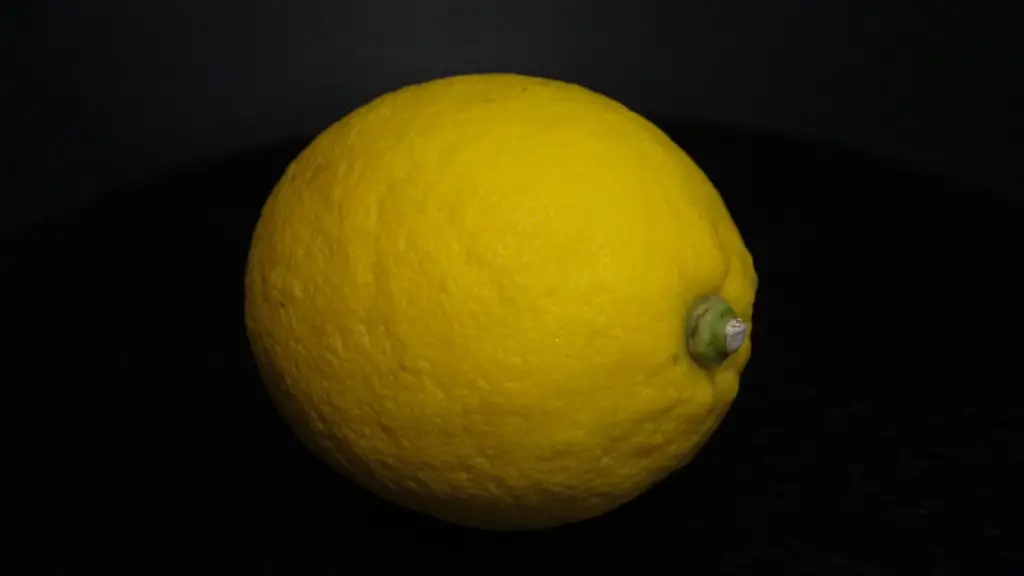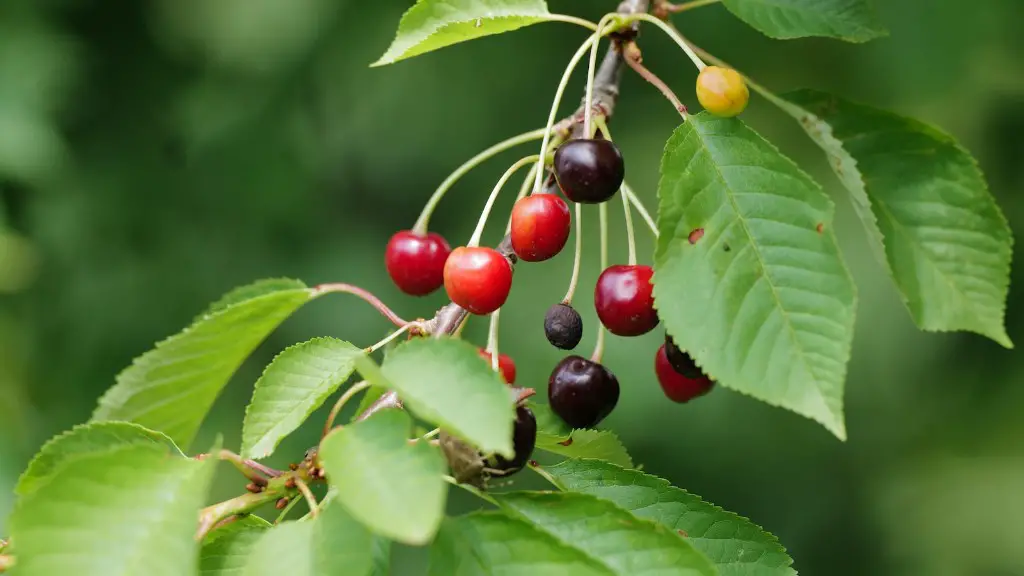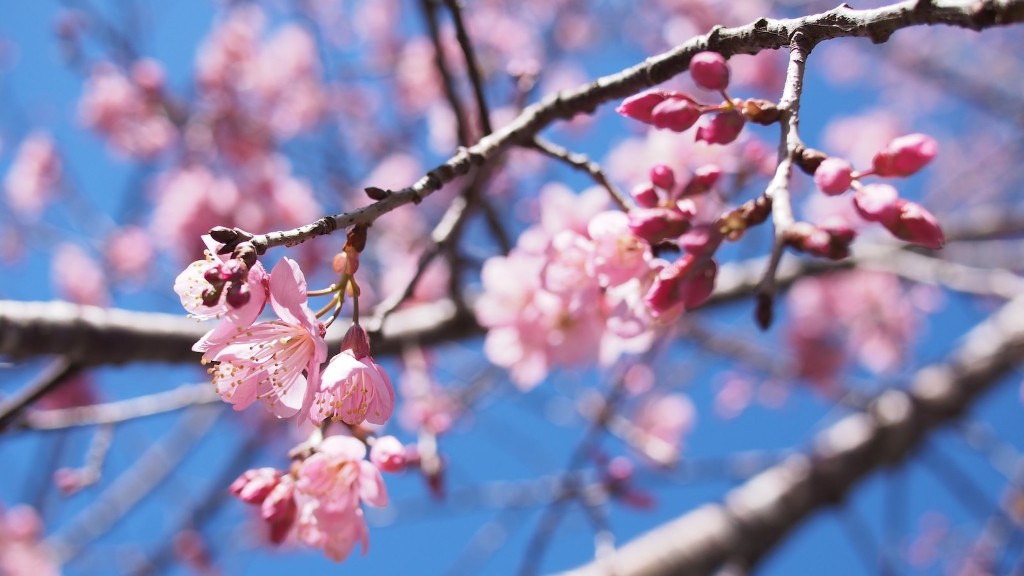Ants are a common garden pest, and can cause a lot of damage to lemon trees. Keeping ants away from lemon trees doesn’t have to be a daunting task. Here are some steps that can be taken to keep pesky ants away from your lemon tree and ensure the health and vitality of the lemon tree.
One of the easiest, yet most effective ways to keep ants away from your lemon tree is to create a barrier of some kind. Sprinkle a line of chalk, talcum powder, cocoa powder, or garlic powder around the base of the tree. These natural elements act as a deterrent for ants, who will avoid the area and not cross them. This same technique is also useful in keeping other bugs and pests away from your lemon tree.
It is important to keep the surrounding area of the lemon tree clean from food scraps and debris. Ants are attracted to sweet and sugary substances, so it’s important to avoid leaving behind any food crumbs that ants could easily locate. Regularly clearing away food debris is important not only for keeping ants away, but also for inhibiting other possible pests and preserving the health of the tree.
You can also use boric acid as a natural insecticide to ensure ants stay at bay. Boric acid can be found easily in most organic stores and supermarkets, and can be mixed with water and sugar to form an effective ant repellent. This mixture can be applied directly to the base of the lemon tree, and will help deter ants from approaching. Make sure to reapply the mixture once a week to ensure maximum effectiveness.
There are also a few plants that can be used to help keep ants away from the lemon tree. Planting lavender, catnip, mint, or pennyroyal around the base of the tree can act as a natural deterrent for ants, as well as other pests. Therefore, it’s always a good idea to keep a few of these plants around your lemon trees, to help keep them safe.
In addition to this, you can also use natural predators to keep the ants away from your lemon tree. Introducing some ladybugs or praying mantises to the area can help to keep the ants away without causing any damage to your lemon tree. These insects feed on a variety of other pests, including ants, so they can be a great way to get rid of them without needing to resort to more drastic measures.
If there are still ants killing your lemon tree, then it is time to call a professional to take care of the infestation. Professional pest control companies will be able to evaluate the situation and come up with the best possible solution for getting rid of the ants, while keeping your lemon tree safe.
Repel Ants with Physical Barriers
There are numerous physical barriers that can be employed to repel ants from lemon trees. These include insect barriers, repellents, sticky barriers, and foil barriers. Insect barriers, such as strips or cards that are coated with an insect-repelling chemical, can be placed around the lemon tree. These repellents can also be applied directly onto the lemon tree, though it is not advised to use them for an extended period of time as residue can accumulate. Another option is to place sticky barriers made from a glue-like substance around the lemon tree. This will allow ants to walk onto the barrier and become stuck, unable to proceed beyond that point.
In addition to these physical barriers, certain types of foil or reflective mulch can be placed around the lemon tree. This creates a barrier of light that will reflect off of the leaves and act as a deterrent for ants, who will be unable to make it through this type of light barrier. Finally, there are also certain plants that can be planted around the lemon tree that will help create a natural, chemical-free barrier against ants.
Examples of these plants include lavender, marigolds, mint, and catnip. These plants will either repel ants if their smell is detected or can easily be hand-picked and disposed of if found in the garden. The scent and presence of these plants is enough to deter most ants from bothering your lemon tree.
Additionally, it is also wise to maintain a well-maintained, tidy garden that is free from foliage and debris. Clean the area around the lemon tree, as ants and other pests are attracted to food scraps and other bits of plant material that may have been left behind. Pay special attention to fallen fruit and leaves which may have dropped from the tree, as these items may be a beacon for ants looking to move in.
Finally, it is also possible to employ biological insect control, such as ladybugs and praying mantises, to ward off ants. These insects are natural predators of ants, and if they are introduced in large enough numbers they can act as a natural deterrent to these pesky creatures and keep them from getting to your lemon tree.
Use Insecticides
Insecticides can also be used to help prevent ants from infesting your lemon tree. These insecticides come in a variety of forms and can be applied to the leaves, trunk, and soil directly surrounding the lemon tree. It is not recommended to use insecticides for an extended period of time, as the chemical residues can accumulate and cause damage to the lemon tree. When applying insecticides, always follow manufacturer instructions carefully, taking extra care to keep the insecticide out of the reach of children and pets.
If you prefer to use a more natural approach, there are several natural insecticides that can also be used. These include such substances as neem oil, orange oil, tea tree oil, soap, or boric acid. Each of these substances will naturally repel ants, though the exact effectiveness of them can vary. Additionally, it is always wise to take into account the weather conditions, as some of these natural insecticides can be easily washed away by the rain.
In addition to insecticides, there are also various sprays and baits that can be used to help keep ants away from your lemon tree. These baits contain an attractive substance, such as honey or sugar, that will draw in the ants and then provide a dose of poison that will kill them. Baits are an effective way to tackle a large ant infestation that may be infesting your lemon tree.
Finally, it is also possible to use a combination of techniques to ensure maximum protection from ants. This includes employing physical barriers, repelling insects with natural insecticides, and using baits and traps to get rid of any larger infestations.
Preventative Measures
There are a few simple preventative measures that can be taken to help ensure ants do not become a problem on your lemon tree. The first step is to prune the tree regularly to keep it healthy and free from any decaying foliage or fruit. This will help make the tree an unattractive target for hungry pests. Additionally, it is important to make sure the tree receives sufficient water each day by providing an adequate irrigation system and to ensure the area around the tree is regularly cleared of leaves, fruits, and spent flowers.
It is also important to monitor the tree regularly for signs of ants or other pests. Any signs should be acted upon quickly in order to limit any potential damage. Additionally, it is important to increase the natural conditions around the tree in order to make it an unattractive target for ants. This can be achieved by adding a layer of mulch around the base of the tree to help the soil retain more moisture and keeping the area free from debris and overgrown plants.
Finally, it is also important to employ natural predators to help keep any infestations in check. Introducing beneficial insects, such as ladybugs, praying mantises, and lacewings to the area can act as an all-natural form of pest control and will help keep the balance of your garden in check. As a final note, it is important to remember that, while a lemon tree is an attractive and valuable addition to any garden, it will need protection from both man-made and natural pests.
Routine Maintenance
In order to ensure the long-term health and vitality of your lemon tree, it is important to do regular maintenance on the tree. This includes pruning the tree, watering the tree, and fertilizing the roots. Pruning the tree will help to keep it healthy and free from any decaying or dead leaves, as well as any dead branches that could be providing an easy entry point for pests.
Watering is also an important part of any maintenance plan, as the tree will need adequate water in order to thrive. Fertilizing the roots with organic materials, such as compost or manure, will also help to enrich the soil and provide the necessary nutrients for the tree. Additionally, it is also wise to keep the area around the lemon tree free from any plants and weeds that could provide a point of entry for ants.
Finally, it is also important to be aware of the local weather conditions and to employ preventative measures accordingly. If the weather is hot and dry, it is important to water the tree more frequently and to make sure the roots are adequately protected. Additionally, windy days can make it easier for ants to travel from tree to tree, so it is important to keep the area around your lemon tree clear and free from debris or vegetation that could provide an easy entry point for the ants.
Take Immediate Action
If you find that your lemon tree has been infested with ants, it is important to take immediate action. The best approach is to use a combination of physical barriers, natural insecticides, baits and traps, and beneficial insects to eliminate the infestation. If the infestation is particularly severe, then it may be necessary to contact a professional pest control company who will be able to provide a more effective solution.
When using physical barriers or natural insecticides, it is important to follow the instructions carefully and to reapply as necessary. It is also important to use baits and traps in large enough numbers to ensure the ant population is properly eradicated. And do not forget to introduce beneficial insects to the area, as these will help to keep any ants from coming back.
Finally, it is important to remember that the best way to keep ants away from your lemon tree is through prevention. Make sure the tree is adequately pruned and watered, keep the area free from debris and debris, and monitor the tree regularly for signs of ants or other pests. With some effort and dedication, you can ensure your lemon tree remains healthy and free from pests.




